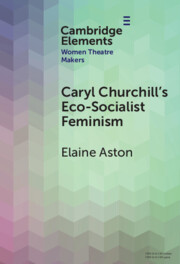Refine search
Actions for selected content:
234 results
4 - Black Marxists and the Character of an African Leninist Economy
- from Part II - Socialist Dreams
-
- Book:
- Socialist De-Colony
- Published online:
- 10 November 2025
- Print publication:
- 20 November 2025, pp 165-200
-
- Chapter
-
- You have access
- Open access
- HTML
- Export citation
Conclusion
-
- Book:
- Socialist De-Colony
- Published online:
- 10 November 2025
- Print publication:
- 20 November 2025, pp 266-288
-
- Chapter
-
- You have access
- Open access
- HTML
- Export citation
6 - Utopias, Dystopias, Labor, and Socialist “Contradictions”
- from Part II - Socialist Dreams
-
- Book:
- Socialist De-Colony
- Published online:
- 10 November 2025
- Print publication:
- 20 November 2025, pp 236-265
-
- Chapter
-
- You have access
- Open access
- HTML
- Export citation
Chapter 5 - Litanies, Food and Personhood
- from Part II - Ethnography
-
- Book:
- Shapes in Revolution
- Published online:
- 07 November 2025
- Print publication:
- 20 November 2025, pp 139-169
-
- Chapter
- Export citation
Hussain on the Market: Critique or Kvetch?
-
- Journal:
- Canadian Journal of Philosophy , FirstView
- Published online by Cambridge University Press:
- 14 November 2025, pp. 1-17
-
- Article
-
- You have access
- Open access
- HTML
- Export citation
The Kantian Critique of Marx’s Property Theory
-
- Journal:
- Kantian Review , First View
- Published online by Cambridge University Press:
- 13 November 2025, pp. 1-19
-
- Article
- Export citation

Socialist De-Colony
- Black and Soviet Entanglements in Ghana's Cold War
-
- Published online:
- 10 November 2025
- Print publication:
- 20 November 2025
-
- Book
-
- You have access
- Open access
- Export citation

Shapes in Revolution
- The Political Morphology of Cuban Life
-
- Published online:
- 07 November 2025
- Print publication:
- 20 November 2025
Chapter 5 - The Dialectic of Economic Freedom
- from Part II - Hegel Beyond Liberalism
-
- Book:
- Hegel Beyond Liberalism
- Published online:
- 27 September 2025
- Print publication:
- 16 October 2025, pp 130-188
-
- Chapter
- Export citation

Caryl Churchill's Eco-Socialist Feminism
-
- Published online:
- 07 October 2025
- Print publication:
- 06 November 2025
-
- Element
- Export citation
Chapter 2 - The Politics of Impossibilism: Germinal
-
- Book:
- Zola's Dream
- Published online:
- 07 August 2025
- Print publication:
- 21 August 2025, pp 70-121
-
- Chapter
- Export citation
Chapter 11 - Conclusion
-
-
- Book:
- Questioning Conventional Assumptions of Competition Dynamics
- Published online:
- 07 May 2025
- Print publication:
- 21 August 2025, pp 264-300
-
- Chapter
- Export citation
Chapter 3 - Socialist Competition
-
-
- Book:
- Questioning Conventional Assumptions of Competition Dynamics
- Published online:
- 07 May 2025
- Print publication:
- 21 August 2025, pp 58-97
-
- Chapter
- Export citation
10 - How Does the State Shape Innovation? How Should It?
-
- Book:
- Innovation Management
- Published online:
- 06 June 2025
- Print publication:
- 10 July 2025, pp 146-159
-
- Chapter
- Export citation
Chapter 18 - Bernard Shaw
- from Part III - Collaborators and Critics
-
-
- Book:
- Sean O'Casey in Context
- Published online:
- 23 June 2025
- Print publication:
- 10 July 2025, pp 192-201
-
- Chapter
- Export citation
Chapter 29 - The German Stage
- from Part IV - Performance Legacies
-
-
- Book:
- Sean O'Casey in Context
- Published online:
- 23 June 2025
- Print publication:
- 10 July 2025, pp 318-328
-
- Chapter
- Export citation
Chapter 1 - Dublin
- from Part I - Key Places and Events
-
-
- Book:
- Sean O'Casey in Context
- Published online:
- 23 June 2025
- Print publication:
- 10 July 2025, pp 9-21
-
- Chapter
- Export citation
Chapter 7 - Class
- from Part II - Social Contexts
-
-
- Book:
- Sean O'Casey in Context
- Published online:
- 23 June 2025
- Print publication:
- 10 July 2025, pp 79-88
-
- Chapter
- Export citation
8 - Pavão-Pavãozinho, Leonel Brizola and Favela Upgrading, 1983
-
- Book:
- Rio de Janeiro
- Published online:
- 01 May 2025
- Print publication:
- 19 June 2025, pp 191-218
-
- Chapter
- Export citation
“A Crime Against Humanity”: Prison, Capitalism, and Convict No. 9653 (Eugene V. Debs)
-
- Journal:
- The Journal of the Gilded Age and Progressive Era / Volume 24 / Issue 3 / July 2025
- Published online by Cambridge University Press:
- 17 June 2025, pp. 326-342
- Print publication:
- July 2025
-
- Article
-
- You have access
- Open access
- HTML
- Export citation
